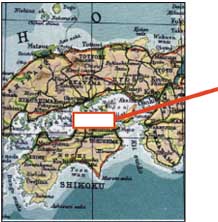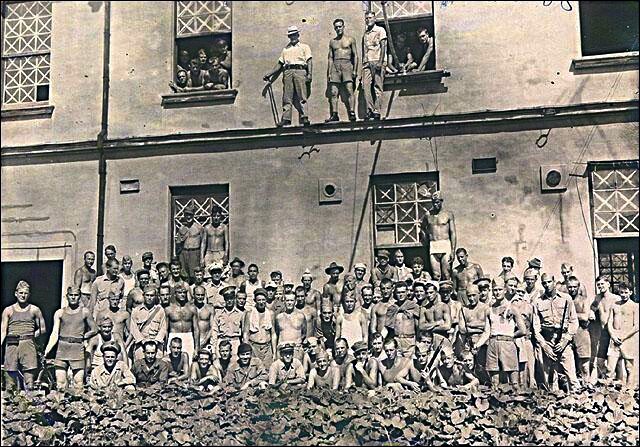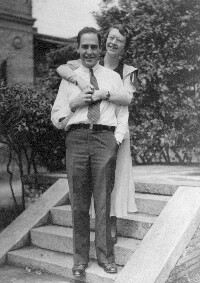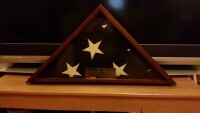|
Hiroshima POW Camp #1-B Zentsuji POW Camp (Kagawa, Shikoku) (formerly Osaka POW Command) |
Main Index Page Camp Lists
|
Zentsuji POW
Camp
(Hir-01B-Zentsuji) Zentsuji- machi, Nakatado-gun, Kagawa-ken Satellite map Aerial (Nov. 1947; courtesy of Japan Map Archives) Area map Time Line: 14 Jan 1942: Established under Osaka POW Command, Section I 15 Jan 1942: 9 POWs arrive from Gilbert Islands; 480 POWs arrive late at night from Guam 19 Jan 1942: 13 POWs arrive from Wake Island 22 Jan 1942: 134 non-combatants transferred to civilian internee camps (Kobe #3 and elsewhere) 12 Mar 1942: Nurses from Guam transferred to civilian internee camp in Kobe; International Red Cross visit to Zentsuji 15 Jan 1943: 150 officers arrive from Tanagawa and other camps 2 Sep 1943: 25 officers arrive from Tanagawa ?? Jan 1945: British officers were moved to Mitsushima POW Camp - some to Miyata and Hakodate as well, date not confirmed. Unknown [for now] destination for Dutch officers. 13 April 1945: Control transferred to Hiroshima POW Camp, renamed Hiroshima #1 Branch Camp 23 June 1945: American officers moved to Rokuroshi 25 June 1945: Australian officers departed 5 Sept 1945: Rescue effected; POWs leave for Wakayama (See also Guam timeline for more details.) Hiroshima POW Camp Group: Established in April 1945 and controlled the branch camps in Chugoku (West Central Japan) area and Shikoku area. The branch camps that used to belong to the Fukuoka and Zentsuji POW Camp Groups were transferred to its jurisdiction. The camp Commander was Col. Gyokuei Kondo. Hiroshima Main Camp: The camp office was temporarily established at Zentsuji POW Camp on April 13, 1945, then moved to Tode-mura, Ashina-gun, Hiroshima Pref. on June 1, 1945. Tode Jitsugyo High School was used for the office building. No POWs were interned in this camp. First known POW camps in Asia: Zentsuji was officially opened in June 1942, however, Wake Island POWs started arriving in January 1942 via Yokohama Port, and those from Guam arrived 2 weeks before via Todatsu Port. Some New Zealanders
a few hours before them (see below re Coast Watchers), so they were the
first POWs in Japan. Labor was performed around Zentsuji, making this the first
labor camp in Japan as well.
Next, Ofuna opened in April 1942, and Tokyo #1 Kawasaki was established in August 1942, the 2nd labor camp probably. Many of the other camps were started in the fall of 1942. For other Asia camps, Hong Kong and Shanghai were the earliest in January 1942. Photographs, Maps, and Sketches Camp layout (courtesy of Brown) Relief supply drop Group of POWs 1943 (courtesy of Billie McNamara) Erhardt, Jonelis,
Eddington, Peterie, Fortney, Rice
Paid agriculturalists ZentsujiPhotographs & Sketches Includes picture taken by Japanese guard Port of entry was Todatsu for Guam POWs. Major work sites were Osa Yama (Mt. Osa), Sakaide, Todatsu, and Takamatsu. POWs transported by trains to the work sites.  Details Details
Japanese Camp Staff: Camp Commander: Hosatani - Convicted and sentenced to 20 years Camp Doctor: Saito - Convicted and Hanged Asabuki - Camp Interpreter "Mr. Cambridge" Mariyania - Camp interpreter Additional Research by Netherlands researcher, John Slootmaekers regarding Intl Red Cross Committee records. Report of 20 April 1944 states 690 POW's at date, mostly officers; Col. K. Sugiyama was Camp Commandant on 4 August 1944 Camp Regulations and Layout (PDF) - courtesy of Janet Sykes Nutrition of POWs at Zentsuji May 1948 (PDF) List of men seeking insurance (PDF) HIR-01 Zentsuji assorted images (PDF) American POW on
Zentsuji dock maybe - Moreton.jpg
Dalrymple, Russell - Boot Camp Pic 1 - Dalrymple.jpg IMG 1370-Red Cross list of camps aug 44.JPG IMG 1371-Red Cross list of camps sep 44.JPG James Drolette - Zentsuji.jpg Johnston diary - Zentsuji 1.jpg Johnston diary - Zentsuji 2.jpg Lt.Carlson POW Zentsuji-message - from Wakelin.jpg Lt.Carlson POW Zentsuji-picture side - from Wakelin.jpg POW Shikoku 1944 - Moreton.jpg Schacht story-USS Perch.txt zent a 1 300dpi copy.tif zent a 2 300dpi copy.tif zent b-medical exam.tif zent b-pows march to osa yama copy.tif zent c- deck of Argentina- China Marines.tif zent c-deck of argentina maru.tif zent c-inspection at shanghai.tif zent d-mcmillan as pow copy.jpg zent d-mcmillan as pow.tif zent d-recreation at zentsuji.tif zent e-classroom at zentsuji.tif zent e-exercise at zentsuji.tif Zentsuji POWs group photo - waiting for liberation.jpg zentsuji 1, 2.jpg zentsuji 3 nurses, 4 Mrs Hellmers and her baby.jpg zentsuji 5, 6.jpg zentsuji 7 (Lane) 8 (Mcmillin).jpg zentsuji 9 (Mcmillin with Danileson to Taiwan)10(Lane).jpg Zentsuji camp photo 1942 - Moreton.jpg zentsuji em barracks.tif zentsuji jail.tif zentsuji latrine.tif zentsuji wash racks.tif IMG 1377-pic-Atsuyoshi Hosokawa.JPG IMG 1378-pic Kataoka Yozo.JPG IMG 1379-pic Hamada George.JPG IMG 1380-pic Toshiro Shinohara.JPG IMG 1381-Taniguchi Masayasu-1.JPG IMG 1382-Taniguchi Masayasu-2.JPG |
Primary
Slave Labor Use: Stevedores at Sakaide Rail Yards and the Port of Takamatsu (Nippon Express Co.) Note: The camp was a "show camp" for propaganda purposes. Contained mostly officers plus enlisted ranks from Guam & Wake Island. Today, it is again a Japan Ground Self Defense Forces (Army) base, housing the 14th Brigade. Neither the Brigade’s website nor museum (Nogi Museum) mention that the base was once a notorious POW camp. Rescue Roster: Total = 110 POWs (104 American, 5 New Zealander and 1 British; 10 deaths) Final rescue roster Roster Aug. 15, 1945 (RG 389 Box 2070) Interim Camp Rosters: These are the English, American, Dutch, Australian/ New Zealand/ Fiji interim rosters listing all men who were, at one time or another, held in this camp. Rosters of Wake men transferred to Zentsuji and the five men murdered at Yokohama HIR-01 Zentsuji rosters RG 407 Box 102 (PDF) - original documents Death lists for Hiroshima camps (PDF) Rosters for all Hiroshima camps #1-#9 (RG 407 Box 103) Alphabetical roster for Hiroshima camps (RG 407 Box 115) Interviews: 15 Dec 2001 PFC.Carroll D. "Barney" Barnett, USMC, Sumay Marine Detachment- Zentsuji POW Camp. Excellent description of the invasion of Guam. "Barney" passed away, December 2001. Hoyt B. Williams Jnr., Lt. (jg), USN, 3rd Engineer on "Stanvac Calcutter", sunk off the Brazilian coast on June 6, 1942 by the German raider STIER. [Merchant Marines] Zentsuji Reunion photos with Roger Mansell (2001?): Affidavits: Capt Michael Ushakoff- describe conditions at camp Capt Stuart Gordon Nottage (AIF) testimony for War Crimes Commission HIR-01 Zentsuji affidavits (PDF) - original documents William Alford
affidavit - 192nd
George Henfling affidavit Frederick Yeager affidavit Robert Newton affidavit - Zentsuji, Sakai Prison Charles Maltby affidavit - Java, Roberts death George McMillin affidavit - Guam Warren Baggett affidavit Article on POWs at Zentsuji (Japanese photo weekly Shashin Shuho 1942-04-29) Story of Navy Nurse Marion Olds, Guam - Zentsuji - Kobe - Gripsholm Coast Watchers: List and details of capture of the New Zealand coast watchers at Zentsuji before the Americans arrived from Guam MSgt. James Alexander Drolette USMC (PDF Collection 1; Collection 2; courtesy of Cathy Drolette Sullivan) Alfred Schlegel Collection (USMC)  "The Zentsuji prisoners of war ran their own camp while waiting for the American liberation forces to arrive to organize their departure back to the United States. They posed outside of the old Japanese headquarters for a group shot." Special file: American Victims of the Atomic Bombing of Hiroshima 1945 (external link) Books Describing Life at Zentsuji: Roger Mansell - Captured: The Forgotten Men of Guam - contains much info on Zentsuji (Roger originally titled his book, The Zentsujians: The story of the American POWs captured by the Japanese on Guam in WWII.) Joe "Fingers" Brown- "We Stole to Live" - the single best POW book on this camp. Contains pictures of over 90% of the men. [Best Book] Ed Hale's Book "First Captured, Last Freed"- Hale was a crewman aboard the USS Penguin and enslaved at Hirohata POW Camp. Don Binns - "A Survivors Story: An American POW in Japan during WW II" - E-book written by Navy man stationed at Piti Navy Yard. UPDATE - Book available; see also webpage on "Don and Eunice." Many photos of camp and POWs in Gallery. "Notify Alec Rattray" by Meg Parkes from the diary of her father, Atholl Duncan, British officer sent to Zentsuji & Rokuroshi. Excellent compilation of information and explanation of diary entries. Sequel: "A.A. Duncan is OK" is also available. |
Berton Arthur Barrett, II Corps of Engineers, Philippines(Photos and story courtesy of Berton Arthur Pollock)My grandfather, whom I never met, Berton Arthur Barrett, is honored on your Guam timeline. I am his namesake, Berton Arthur Pollock. He was a Major and Civil Engineer. When captured in the Philippines, he was forced to walk the Bataan Death March. He marched and survived, from what my mother and grandmother tells me, only to be placed in Japanese prisoner of war camp. He died of what we suspect was intussusception, an intestinal disorder like you noted. I've done quite a bit of research on the subject and what we suspected caused it, malnutrition, may not have been the cause, but a major contributing factor. I have his official burial flag that they draped over his coffin during his burial with full military honors at Woodlawn cemetery in Elmira, NY, his hometown. The flag is in immaculate condition. It only has 48 stars on it. We found it high up, tucked away in a corner at my grandmother's, the recipient of the flag during the ceremony. The flag was neatly tucked in a brown paper bag with the words, written on the bag in pen: "THIS FLAG WAS USED AT THE
FUNERAL OF MAJ. BERTON ARTHUR BARRETT W.W. II, BURIED AT WOODLAWN
CEMETERY 1949. IT IS TO BE GIVEN TO BERTON ARTHUR POLLOCK - HIS
GRANDSON & NAMESAKE --Marcia Barrett Bowes"
The majority of my family was captured in the Philippines. My grandmother, mother, aunt and uncle were transferred to Santo Tomas concentration camp operated by the Japanese to house American and British troops. They lived off what little the Japanese provided and what else they could scrape up to eat, which I am sure you don't want the details of. My mother told me a story that her mother used to sleep on the cold ground and make my mother sleep on her back so she could keep warm. My mother was only six years old at the time. She shared many stories with me, but her favorite is when an American bomber pilot flew low and slow over the camp on February 3, 1945, and dropped something. It was his flyer's goggles with a note inside that simply read “Roll out the barrel, Christmas is coming. We’ll be with you Sunday or Monday!” They referenced Christmas to hope to confuse the Japanese, since they wouldn't know what it meant. But the prisoners who read it first knew exactly what it meant. American forces liberated the camp in February 3, 1945. My mother says she has a vivid memory of swinging on the main barrel of one of the tanks that liberated the camp. I salute every veteran out there who was fought for any war, if it's declared a war or not, and give thanks to our veterans even if they never saw battle, and give thanks to every one of them for their service to the United States. I'm still trying to find out more about Maj. Berton Arthur Barrett. Unfortunately, his records were damaged or destroyed by a fire in the National Personnel Records Center on July 12, 1973. About 10 years ago, I requested a copy of his records, not knowing about the fire. They told me about the fire and said they would try to recover what they could for a $90 fee. I'm going to look into it again and see what my options are. I would absolutely love to know of Berton Arthur Barrett's accomplishments, medals, decorations, and anything I can find. --Berton Arthur Pollock
|
|

